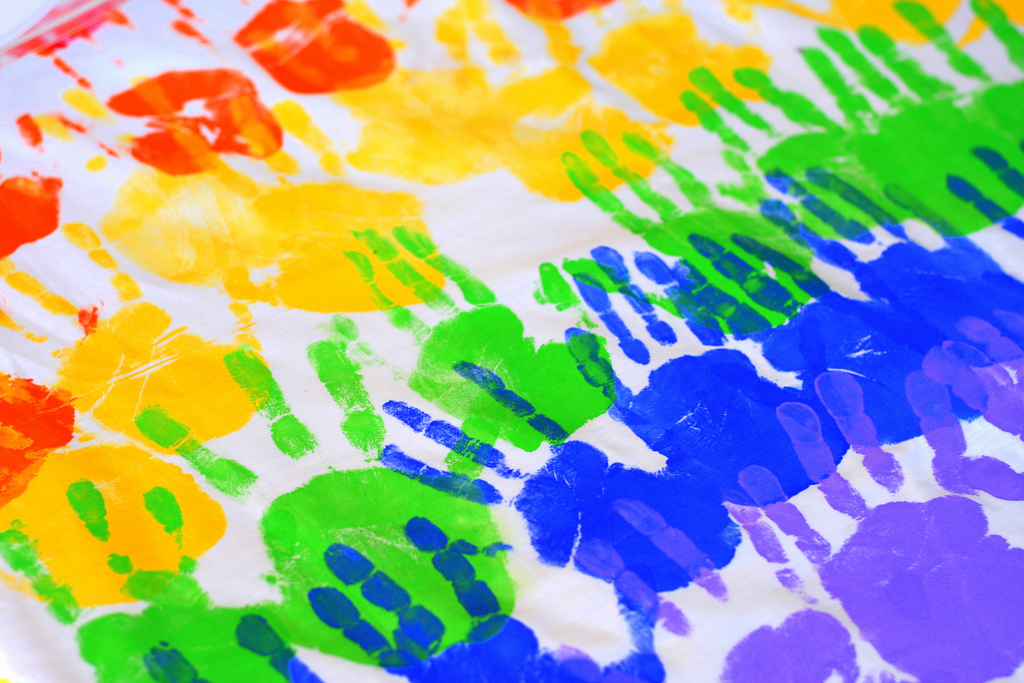How are the mentoring needs of LGBTQ graduate students unique?
For LGBTQ graduate students, challenges such as program climate, coming out, establishing a support system, confronting microagressions and heterocentric attitudes in coursework, advocating for the inclusion of LGBTQ issues in ones program, and conducting LGBTQ-related research can uniquely influence the graduate school experience (“Proud and Prepared…”, 2015). Studies looking specifically at mentoring relationships and needs among LGBTQ graduate students highlight a plethora of societal, environmental, and contextual factors which influence LGBTQ graduate students’ academic and professional development, and emphasize the specific need for LGBTQ mentors (Matheney, 1998).

Become a mentor or a mentee this August. (Source: User John-Morgan on Flickr. Some rights reserved).
Social support, such as that found in a mentoring relationship, is one key factor shown to positively influence the career development of lesbian women and gay men (Morrow, Gore, & Campbell, 1996). Lin (2001) found that gay and lesbian protégés found more perceived support from gay or lesbian mentors than heterosexual mentors. Nearly all of the LGBTQ+ graduate student participants in a study by Lark and Croteau (1998) reported pursuing a LGB-affirming mentoring relationship but having difficulty finding one, which participants expressed as a serious disappointment. Participants cited wanting the expertise of mentors concerning LGB perspectives in clinic work, LGB research strategies, LGB professional advocacy, LGB career planning concerns such as identity management and disclosure on resumes or in interviews, providing models of successful out LGB professionals, and having someone with similar experiences with whom to disclose situations of discrimination (Lark & Croteau, 1998). Although these needs can, and certainly should, be addressed by faculty and practitioners of any sexual orientation or gender identity, the need for LGBTQ graduate students to have a mentor who also identifies as LGBTQ—and the tendency to seek mentors of similar sexual orientation or gender identity—shouldn’t be overlooked (Nauta, Saucier, & Woodard, 2001; Russell & Horne, 2009).
How does APAGS help address the needs of LGBTQ graduate students?
The APAGS LGBT Graduate Student Mentoring Program is designed to address the needs of LGBTQ graduate students in psychology by matching them with an LGBTQ-identified advanced graduate student or professor who shares similar interests, experiences, and goals. Mentors and mentees are provided monthly discussion prompts, a closed listserv to create a venue for dialogue, access to resources (such as webinars) relevant to LGBTQ graduate students, and opportunities to connect at APA Convention. As one mentor in the program reported:
“…I have felt very grateful to be part of the APAGS LGBT mentoring program. My PhD program has no open or out faculty members and I am one of two openly gay students. As a result, the sense of aloneness and isolation as an LGBTQ student and practitioner has periodically overshadowed my training and education process. Through this mentoring program, I was able to receive professional guidance and genuine relational support from a seasoned LGBTQ psychologist…who could also relate very personally to the social pressures and professional challenges of being a minority graduate student, as well as working as an openly gay psychologist.” –Brian
Interested in becoming a member of the 2015-2016 APAGS LGBT mentoring program—either as a mentee or mentor? Applications for the program are now available through the APAGS Committee on Sexual Orientation and Gender Diversity website, and should be submitted electronically by August 15, 2015. Pairs will be formed on or around September 1, 2015.
Editor’s Note: This post was written by Mary T. Guerrant, M.S., a doctoral student at North Carolina State University and member of the APAGS Committee on Sexual Orientation and Gender Diversity. It originally appeared in “Perspectives on Lesbian, Bisexual, and Transgender Concerns,” a newsletter publication of APA Division 35 (Psychology of Women) Section IV (LBT Concerns). It is reposted here with generous permission.


I have applied to be a mentor for transgender, gender nonconforming, and Intersex issues. Please check out my blog:
transatlantictransadvocates.wordpress.com
I am here to help.
Is there an age limit for this?
Thanks for your question, Susan. There’s no age limit–as long as you’re currently enrolled as a graduate student and a member of APAGS, you are welcome to apply as a mentee in the program. Here’s the link to the website for the program, which has more information: http://www.apa.org/apags/governance/subcommittees/clgbtc-mentoring-program.aspx
We’ll start a new cycle in September, with applications due on August 15th. I’d encourage you to apply!